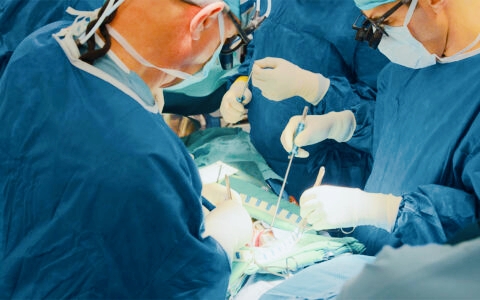In a promising medical achievement, a recent study revealed encouraging results for partial heart transplantation in children suffering from serious congenital heart valve defects, especially those who do not have access to complete hearts from donors for traditional transplantation procedures.
The study was conducted on 19 children who underwent this new type of surgery that relies on transplanting only heart valves from brain-dead donors.
Researchers confirmed, in a report published in the Journal of the American Medical Association, that all transplanted valves continued to function efficiently during a median follow-up period of six months, while the youngest patient was only two days old at the time of surgery.
* Remarkable Omani Success
In this context, the Sultanate of Oman witnessed its first partial heart transplantation from a brain-dead donor, marking a pioneering step in the Arabian Gulf region and enhancing the prospects of applying this technique in other countries.
* The Advantage of Growing with the Child
One of the most significant findings of the study is that the transplanted valves demonstrated a unique ability to grow with the children, which represents a huge difference from artificial alternatives that do not grow and require replacement at later stages of life.
* Researchers' Statements
Dr. Joseph Torric, the leader of the research team from Duke University, stated:
"Our results show that partial heart transplantation is not just a temporary success, but a diverse and promising therapeutic option that can be applied to a range of heart diseases in children."
He added:
"We observed that the valves function efficiently and require lower doses of immunosuppressants compared to full heart transplants, which reduces potential complications and improves the quality of life for children and their families."
* 'Domino' Technique
What is notable about these procedures is that some cases rely on what is known as the 'domino transplantation technique,' where valves from children who underwent full heart transplants for reasons unrelated to the valves are used, maximizing the benefit from donated organs and reducing waste.
* Fewer Complications and Continuous Monitoring
Researchers confirmed that no immune complications or the need for additional surgeries to repair the valves were recorded during the follow-up period.
However, the medical team acknowledged that the long-term effectiveness of these valves is still under study, and that the new technique, despite its promising prospects, is not a magic solution but an advanced step that requires further research and development.
Partial heart transplantation represents a qualitative leap in the field of pediatric medicine, combining medical innovation with human compassion, giving these young patients a new opportunity for life with a natural heartbeat and integrated growth without the need for repeated surgeries.

